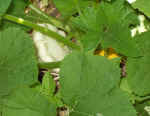Navigation
Resources
Bibliography
Photos
Drawings
Appendix
Journal
Forum
Presentation
Resume
Portfolio
Help
|
Financial Strategy
The following is a more detailed list of our financial strategy to pay for the costs of this project:
- We have been out of debt for several years and plan to keep it that way.
- We decided to provide a temporary loan from ourselves to this project for up to US $30,000, as needed.
- We have not made any efforts to find any external funding like grants and want to do this in later phases, especially for the additional accessory building. We have not been successful in doing any trade arrangements at this point or receiving any material donations.
- By providing more of our needs from the property directly, ongoing expenses for energy and food should be eventually reduced, although we are not expecting this to happen before a few years into the redesign including produce, fruits, berries, mushrooms, herbs, spices, teas and medicine, water for irrigation, fertilizer in the form of worm compost, etc.
- We will be able to rent out or accommodate help in the future accessory building ("Eco-Finca") and generate additional income.
- We are working on developing some crops from our property for supplementing our income (see below).
- There is the potential for new business development as part of the project that fits the vision of sustainable living and contributes to the financial resources available. On site, this could be on site classes, creating materials that can be sold for a fee or attract potential clients, the mentioned cash crop or off site enterprises in different markets. The idea for offsite businesses would be that after the start up phase, they would need mostly management. This type of diversification can make the income stream more consistent even when facing different types of challenges and if successful, could be sold at a later time and provide needed funds later in life.
- We will further develop our financial management and accounting skills. Berta has been an accountant for many years, which is very helpful in the planning aspects and in regards to tax requirements. We will use a separate checking account solely for this project.
- We are reviewing if some current expenses can be eliminated or reduced and instead made available to the project, for example our health insurance.
- There will be no changes in premium for our homeowners and business insurance according to the provider. What we currently have is sufficient for ourselves. Help and contractors need to insure themselves for accident, liability, etc.
- Using, reusing and selling things that are available from the property. Here a small list of examples in our situation:
- Wood branches for trellises, stakes and supports as well as for small outdoor fires
- Wood from the deck for borders for new raised beds, for fencing, for framing the porch, concrete forms, etc.
- Stones for weights keeping down cardboard to prevent to be blown off by wind, as heat collector and radiator around warmth loving plants, support for raised barrels, etc.
- Dirt dug out for landscaping, building (clay) or sub-base (gravel and sand)
- Nails pulled from taking apart existing things
- We even sold the majority of wood (barn wood) of an old shed that was about to fall over to a local furniture business.
- In order to be reasonable prepared for difficult periods of world change there are several things we are doing or planning to do that might be helpful:
- Keeping some cash on hand, in a save place
- Acquiring some precious metals. In case the currency system breaks down it is very possible that silver and gold coins will keep their value.
- If possible, acquire some land or have some land available for food production.
- If not possible to acquire some land invest in agreements and people. For example instead of buying a piece of land, find landowners that are interested in giving long-term leases, which are usually easily affordable.
- Learning new skills and trades, especially ones that help to provide for our daily needs, can be very valuable when the energy supply from the utilities fails and therefore manufacturing needs to be done locally.
- Slowly developing a stock of materials, seeds, tools, information, durable food supplies and an emergency supply of food, water, clothes and shoes, fuel, medicine and fodder for any animals.
- Connecting to other people, friends and neighbors
- Prepare an emergency pack that is always ready and contains all of the most important things if needing to leave at a moments notice or in case of catastrophes and emergencies.
- Supporting initiatives, people and businesses in our community that aim to provide for our daily needs from local resources, develop local energy, food, water and forestry systems.
|


